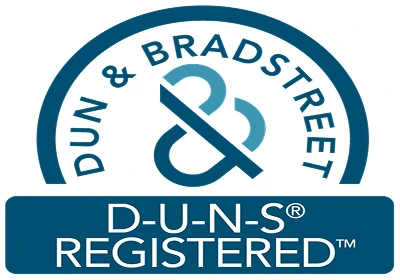Polymers and Resins Published Insights
Published Date : 10 Feb, 2026
Adipic acid is a vital raw material used in the manufacturing of industrial fiber such as Nylon 6.6. Adipic acid is basically produced by using various raw materials such as benzene, cyclohexane, and phenol. The lower purity grade of adipic acid is used to produce pol... View more
Published Date : 10 Feb, 2026
Styrenic polymers are manufactured by the polymerization of styrene monomers and are widely used as a substitute for a number of metallic parts used in various end-user industries. Styrenic Polymers offers a wide range of products across various industries such as con... View more
Published Date : 10 Feb, 2026
Aliphatic polyketones are characterized by a carbon-carbon backbone consisting of carbon monoxide and alpha-olefins. Their perfectly alternating structure gives rise to a unique combination of properties such as short molding cycles, low warpage, superior resilience, ... View more
Published Date : 10 Feb, 2026
Polymerization catalysts are substances that facilitate the synthesis of various polymers. These catalysts are based on metal ions and organic ligands. Typically, the polymerization process starts with the addition of one monomer to a reaction center. The addition of ... View more
Published Date : 10 Feb, 2026
Latex sealant is used for connecting various materials and parts. It is synthetic semi-solid material which offers prevention from liquid leakage. The sealants are used for different purposes such as automobile sealers, insulated glass sealers, construction sealers, a... View more
Published Date : 10 Feb, 2026
Report Description Ultra high molecular weight polyethylene ropes provide high level of security and protection for the mooring of tanker vessels. UHMWPE ropes are smaller in volume, which makes them suitable for s... View more
Published Date : 10 Feb, 2026
PEDOT (Poly(3,4-ethylenedioxythiophene)) is a type of conductive polymerthat possesses electronic and ionic conduction properties. These properties makes it capable of using PEDOT in a various sectors such as energy, healthcare, and in the electronics industry in the ... View more
Published Date : 10 Feb, 2026
Biodegradable plastic is a type of plastic that can be broken down naturally by bacteria or fungi into simpler compounds. It can be used in various applications, such as packaging materials, disposable cutlery, agricultural films, and medical devices. Biodegradable pl... View more
Published Date : 10 Feb, 2026
Carbon fiber heating elements are lightweight fibers and delivers excellent characteristics such as high tensile strength and high temperature tolerance in comparison with conventional structure metals such as aluminum and steel. Thus, high demand for carbon fiber com... View more
Published Date : 10 Feb, 2026
Biodegradable fabrics have emerged as a sustainable alternative to conventional fabrics in recent years, addressing the growing concerns regarding environmental pollution and waste. These fabrics are designed to break down naturally, thus reducing their impact on the ... View more
Published Date : 10 Feb, 2026
Cyanate ester resins are a class of high-performance thermosetting materials that exhibit excellent mechanical and thermal properties. These resins are widely used in various industries such as aerospace, defense, electronics, automotive, and others due to their remar... View more
Published Date : 10 Feb, 2026
Global aniline market has been growing steadily over the past few decades. Aniline is an aromatic organic compound with the formula C6H5NH2. It is a colorless, volatile, highly toxic liquid that has a strong amine-like odor. It is produced on a large scale worldwide p... View more
Published Date : 10 Feb, 2026
Plant-based plastics, also known as green plastics, are a category of plastics derived from renewable biomass sources such as vegetable oils and starches. They provide an environmentally sustainable alternative to conventional petroleum-based plastics. Green plastics ... View more
Published Date : 10 Feb, 2026
The sustainable biopolymers market in India is poised to grow significantly in the coming years. Biopolymers are derived from renewable bio-based resources and have a lower environmental impact than traditional plastics. Rising concern for environmental protection and... View more
Published Date : 10 Feb, 2026
The Europe sustainable biopolymers market has been gaining significant traction in recent years, owing to stringent environmental regulations regarding the use of conventional plastics and growing consumer preference for eco-friendly products. Biopolymers are develope... View more
Published Date : 10 Feb, 2026
The global synthetic polymers market is estimated to be valued at USD 26.32 Bn in 2025, growing at a compound annual growth rate (CAGR) of 5.4% from 2025 to 2032. The global synthetic polymers market has witnessed substantial growth over the past few decades. Synthe... View more
Published Date : 10 Feb, 2026
Global photopolymer market is estimated to be valued at USD 3.51 Bn in 2025, exhibiting a compound annual growth rate (CAGR) of 10.7% from 2025 to 2032. Photopolymer is a light-sensitive polymer that undergoes a chemical change when exposed to light, usually in the vi... View more
Published Date : 10 Feb, 2026
The plastic resins market is estimated to be valued at USD 872.43 Bn in 2025, exhibiting a compound annual growth rate (CAGR) of 4.6% from 2025 to 2032. The plastic resins market has been growing steadily over the past few decades. Plastic resins refer to basic orga... View more





